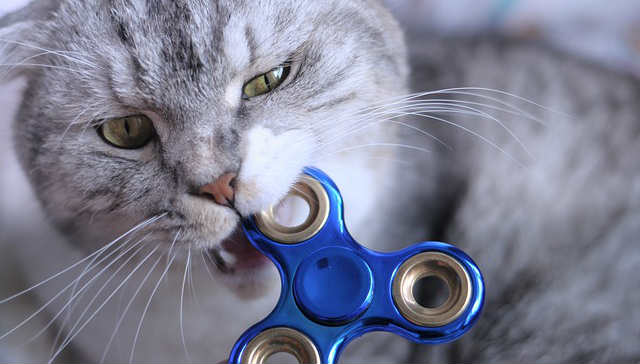Why does my cat chew on everything?
Original Question: I have an almost 2-year-old cat who eats shoelaces wires and cords (chews them in half) tank top straps plastic bags zip locks anything she can get her little jaws on. We keep cat-proofing according to her newest preference but as soon as we do that she finds something else to eat. She had a 4 ft piece of yarn removed from her belly at about 6 months old, which alerted us to the problem. We remove things she'll chew on, we've put tubing around wires, we use the bitter spray… but she just moves on to something else so we're constantly 1 step behind. Are there any toys or chewies you'd recommend or any other techniques to stop her from eating and chewing on everything? Her vet has given her a clean bill of health but could it be anything nutrition-deficiency related or something else? - Sarah
 Aug 5, 2017
Aug 5, 2017
Hi Sarah,
This is a fantastic question and a common problem. I have personally seen cats that have ingested multiple foreign bodies needing surgery because of this issue. There are many reasons why a cat may ingest items that are not food or are dangerous. Certainly, as you alluded to, it is important that you ensure your cat does not have any underlying health problems. I know that there have been reports of pica disorder in cats (behavior of eating non-food items) being related to diseases such as inflammatory bowel disease, allergies, and also stress or anxiety problems in cats. You may want to have your veterinarian do some diagnostics such as bloodwork to see if anything is amiss. Avoidance, as you have been doing, is likely the best thing you can do aside from working to identify a specific underlying cause. You may also want to discuss a diet change or supplements with your veterinarian as well. If you witness your cat eating something she shouldn’t, then definitely having her into the vet right away is the best idea. This will give us the best chance of preventing life-threatening complications.
I hope this helps.
Dr. Kim Hester


Disclaimer: healthcareforpets.com and its team of veterinarians and clinicians do not endorse any products, services, or recommended advice. All advice presented by our veterinarians, clinicians, tools, resources, etc is not meant to replace a regular physical exam and consultation with your primary veterinarian or other clinicians. We always encourage you to seek medical advice from your regular veterinarian.

